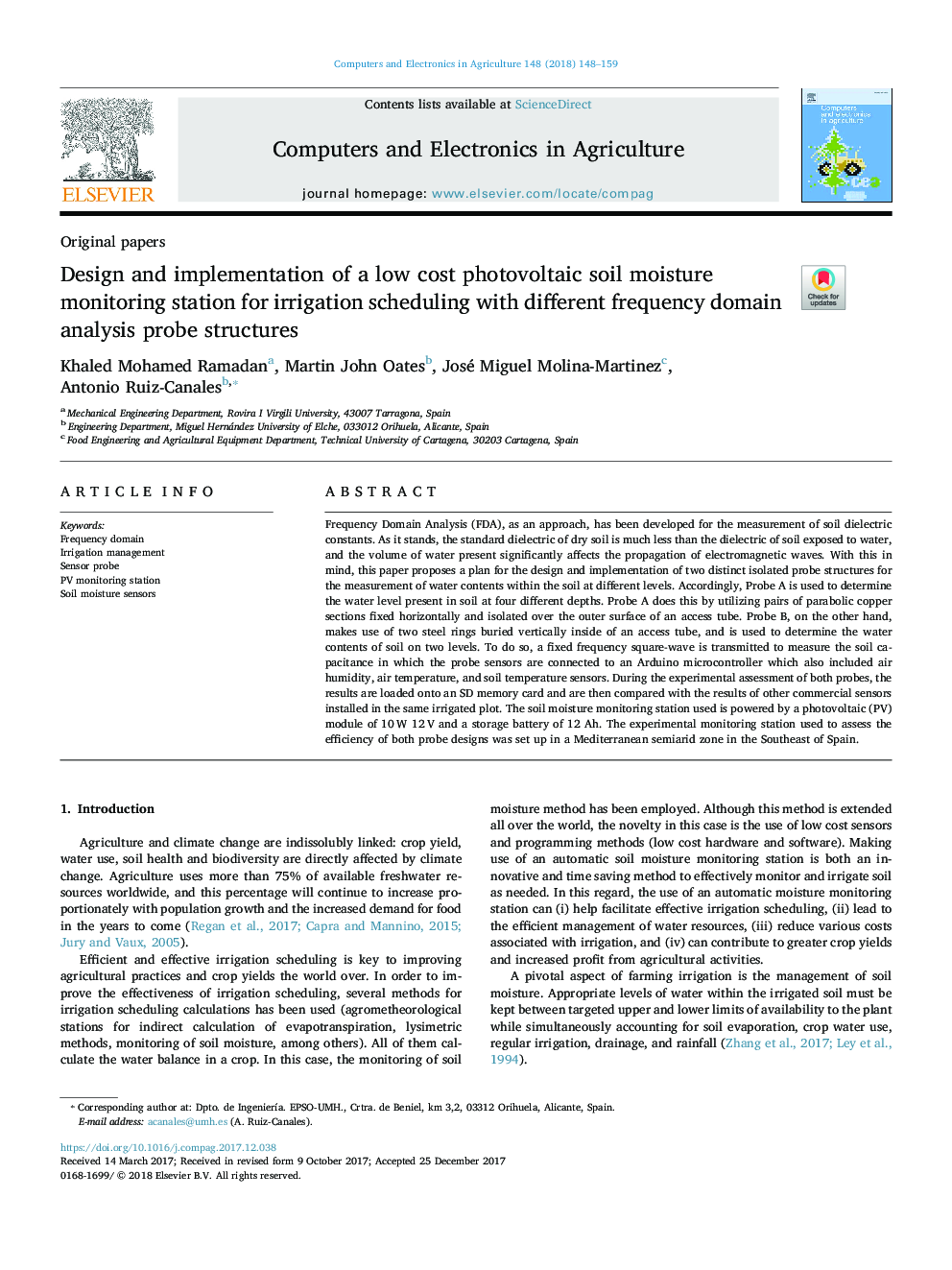| Article ID | Journal | Published Year | Pages | File Type |
|---|---|---|---|---|
| 6539535 | Computers and Electronics in Agriculture | 2018 | 12 Pages |
Abstract
Frequency Domain Analysis (FDA), as an approach, has been developed for the measurement of soil dielectric constants. As it stands, the standard dielectric of dry soil is much less than the dielectric of soil exposed to water, and the volume of water present significantly affects the propagation of electromagnetic waves. With this in mind, this paper proposes a plan for the design and implementation of two distinct isolated probe structures for the measurement of water contents within the soil at different levels. Accordingly, Probe A is used to determine the water level present in soil at four different depths. Probe A does this by utilizing pairs of parabolic copper sections fixed horizontally and isolated over the outer surface of an access tube. Probe B, on the other hand, makes use of two steel rings buried vertically inside of an access tube, and is used to determine the water contents of soil on two levels. To do so, a fixed frequency square-wave is transmitted to measure the soil capacitance in which the probe sensors are connected to an Arduino microcontroller which also included air humidity, air temperature, and soil temperature sensors. During the experimental assessment of both probes, the results are loaded onto an SD memory card and are then compared with the results of other commercial sensors installed in the same irrigated plot. The soil moisture monitoring station used is powered by a photovoltaic (PV) module of 10â¯W 12â¯V and a storage battery of 12 Ah. The experimental monitoring station used to assess the efficiency of both probe designs was set up in a Mediterranean semiarid zone in the Southeast of Spain.
Related Topics
Physical Sciences and Engineering
Computer Science
Computer Science Applications
Authors
Khaled Mohamed Ramadan, Martin John Oates, José Miguel Molina-Martinez, Antonio Ruiz-Canales,
